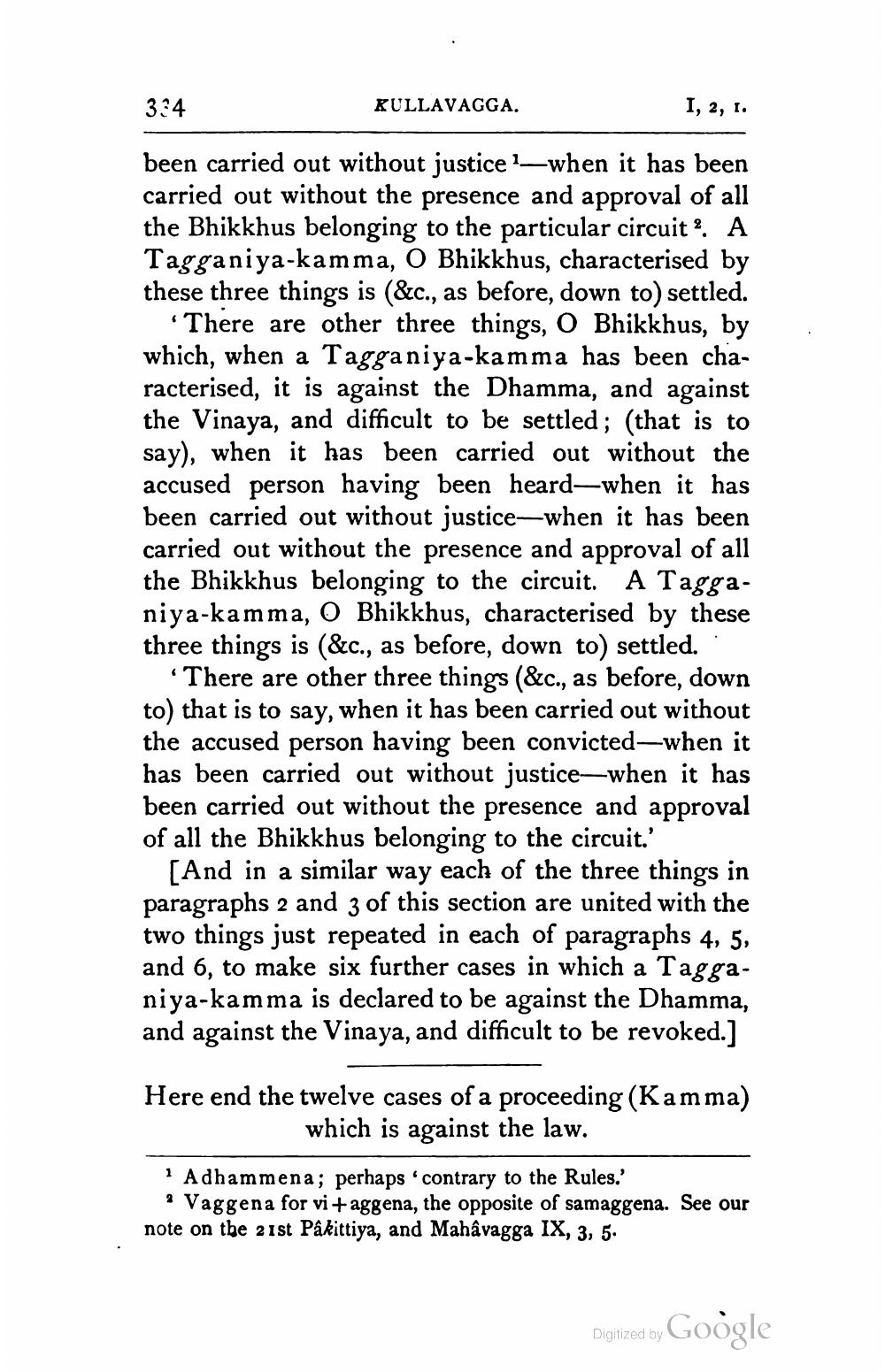________________
334
I, 2, 1.
been carried out without justice-when it has been carried out without the presence and approval of all the Bhikkhus belonging to the particular circuit 2. A Tagganiya-kamma, O Bhikkhus, characterised by these three things is (&c., as before, down to) settled.
There are other three things, O Bhikkhus, by which, when a Tagganiya-kamma has been characterised, it is against the Dhamma, and against the Vinaya, and difficult to be settled; (that is to say), when it has been carried out without the accused person having been heard-when it has been carried out without justice-when it has been carried out without the presence and approval of all the Bhikkhus belonging to the circuit. A Tagganiya-kamma, O Bhikkhus, characterised by these three things is (&c., as before, down to) settled.
'There are other three things (&c., as before, down to) that is to say, when it has been carried out without the accused person having been convicted-when it has been carried out without justice-when it has been carried out without the presence and approval of all the Bhikkhus belonging to the circuit.'
KULLAVAGGA.
[And in a similar way each of the three things in paragraphs 2 and 3 of this section are united with the two things just repeated in each of paragraphs 4, 5, and 6, to make six further cases in which a Tagganiya-kamma is declared to be against the Dhamma, and against the Vinaya, and difficult to be revoked.]
Here end the twelve cases of a proceeding (Kamma) which is against the law.
1 Adhammena; perhaps 'contrary to the Rules.'
2 Vaggena for vi+aggena, the opposite of samaggena. See our note on the 21st Pâkittiya, and Mahâvagga IX, 3, 5.
Digitized by Google




